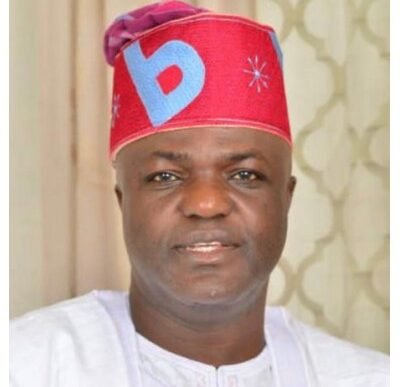HB. 1877 A BILL FOR AN ACT TO ALTER THE CONSTITUTION OF THE FEDERAL REPUBLIC OF NIGERIA, CAP. C23, LAWS OF THE FEDERATION OF NIGERIA, 2004 TO INCREASE THE NUMBER OF JUDGES OF THE SUPREME COURT OF NIGERIA TO CONFORM WITH FEDERAL CHARACTER PRINCIPLES; AND FOR RELATED MATTERS Bills Sponsor Hon. Olumide Babatunde Osoba. Bills Progress Committee Stage
This Bill seeks to alter Section 230 of the Constitution, to increase the number of Judges of the Supreme Court of Nigeria from twenty-one to twenty-five.
The introduction of HB 1877 marks a significant proposal to amend the 1999 Constitution of the Federal Republic of Nigeria, with a clear focus on enhancing the representation within the Supreme Court of Nigeria. This bill seeks to increase the number of Supreme Court judges, aiming to better conform to the Federal Character Principle, a vital constitutional mandate in Nigeria.
The Federal Character Principle is intended to promote fairness in the appointments to public offices and the distribution of resources across Nigeria’s diverse ethnic and regional groups. By ensuring that no single group dominates key positions within the government, this principle fosters national unity and a shared sense of belonging among all citizens. The proposed changes in HB 1877 are designed to address concerns that the current composition of Supreme Court judges may not adequately reflect the country’s federal character, potentially leading to imbalances in representation from various states or geopolitical zones.
In practical terms, the bill aims to create additional slots for judges on the Supreme Court, which could allow for a more equitable distribution of judicial representation. Advocates of this change argue that a diverse Supreme Court bench, reflecting Nigeria’s rich tapestry of geographical origins, would enhance public confidence in the judicial system. The increased representation could reassure citizens that their interests are being represented at the highest levels of the judiciary.
While the stated objective of the bill prioritizes federal character, it is worth noting that expanding the number of judges could also have implications for the overall workload within the Supreme Court. An increase in judicial personnel could help distribute case loads more effectively, improving the court’s efficiency. However, the primary focus of the bill remains on enhancing representation and ensuring that the Supreme Court mirrors the diversity of the nation.
The process to amend the constitution is complex and rigorous. As proposed in HB 1877, the bill will require substantial majorities in both the House of Representatives and the Senate to pass. Additionally, after the legislative approval, it must be ratified by a specified number of State Houses of Assembly, emphasizing the need for broad support across various levels of government.
The sponsor of HB 1877 is identified as Hon. Olumide Babatunde Osoba, who has championed this important initiative amid ongoing discussions about judicial representation in Nigeria. Interestingly, this bill has been consolidated with another legislative proposal (HB 1190), introduced by Hon. Benjamin Okezie Kalu; however, the core content pertaining to the increase of Supreme Court judges is uniquely attributed to HB 1877.
In conclusion, if passed, HB 1877 has the potential to significantly reshape the Supreme Court of Nigeria, ensuring it better reflects the diverse voices and backgrounds of the nation. As the bill moves forward through the legislative process, its implications for judicial representation and the principle of federal character in appointments will remain crucial topics of discussion among lawmakers and the public alike.











